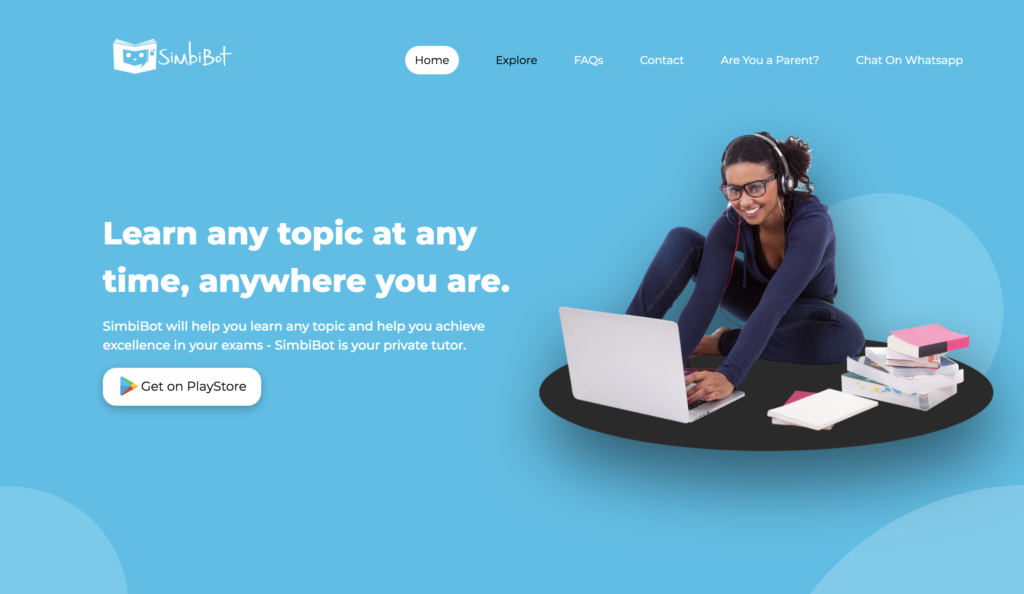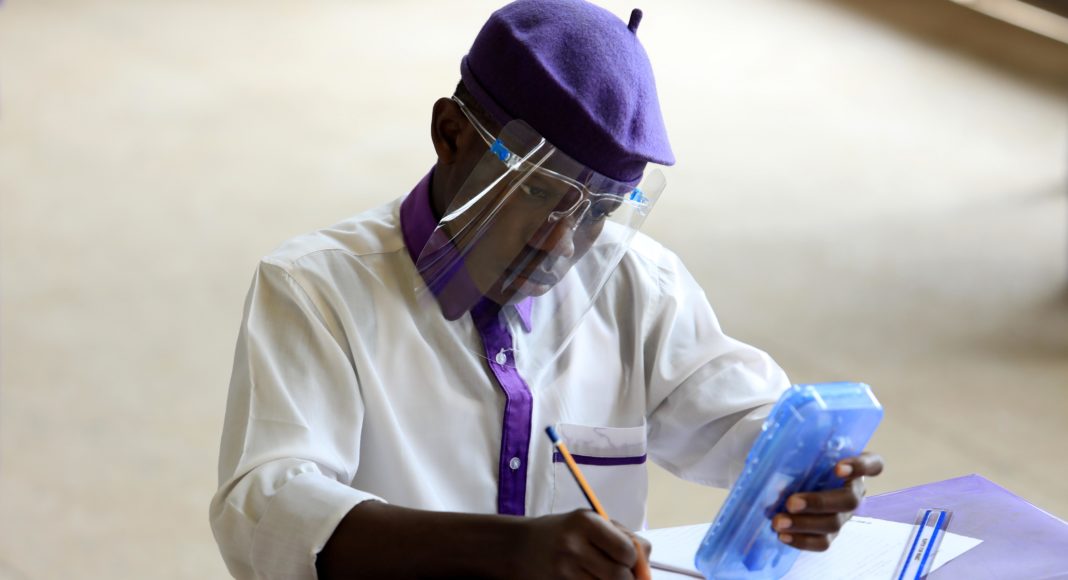By Kemi Falodun
The coronavirus pandemic has highlighted gaps and deficiencies in many sectors of society, but it has also revealed major opportunities for innovation. With schools closed for several months as part of the measures to curb the spread of Covid-19, students across Nigeria have had to find alternative approaches to education.
Education technology, or Edtech, describes different uses of software and hardware to facilitate education, and has been adopted for several years across the world. Irrespective of location, people can enroll for programs online in different disciplines. However, few platforms specifically cater for secondary school students in Nigeria and West Africa.
Launched in 2019, SimbiBot offers personalized, interactive learning experience for this demographic in Nigeria and Ghana. With different packages ranging from 1500 naira to 10,000 naira, the SimbiBot app is accessible to anyone with internet access. During last year’s lockdown, the platform recorded a 69 percent increase in enrollment, an indication of how Edtech might impact the evolution of education in Nigeria.
“Edtech makes learning borderless,” said Sodeeq Elusoji, co-founder and CTO of SimbiBot. “There is also a non-static curriculum.” Everything is modernized and updated, no room for archaic materials. “No issue of teachers using lesson notes from the time they were in school,” he said, in comparison with some state-owned schools where this practice is common.
Despite being a crucial aspect of the social and economic development of a nation, the education sector in Nigeria is poorly funded. The budgetary allocation of 5.6 percent in 2021 was the lowest in the past decade, falling well below the 15 to 20 percent recommended by the United Nations Educational Scientific and Cultural Organization (UNESCO). 10.5 million children aged five to 14 are out of school, underlining the disappointingly low value the Nigerian government places on education.
The main obstacle to Edtech in Nigeria is the lack of reliable and affordable internet service. SimbiBot found a way to circumvent this by making study materials downloadable. “The basic learning features are available offline,” Sodeeq explained. Another challenge Sodeeq and his team face is the rigid perception of what schooling should look like. “When you want to shift people’s orientation on something, it takes a while,” he said.

uLesson is another online platform with a reach across West Africa. Their program is targeted towards secondary school students with an aim to provide quality learning experience on a wide range of subjects from business studies to basic science.
When Aisha Yusuf, a 100Level computer engineering student enrolled on uLesson, she had expectations that the program would prepare her adequately to excel in her exams. At the time, she was in secondary school preparing for WASSCE and UTME and she registered for Chemistry, Physics, Biology, Mathematics. This was her first virtual learning experience.
“It taught me the parts of each subject I didn’t understand, especially chemistry. It showed me that no matter how long I’ve been away from school, what has been forgotten can easily be recovered,” she said.
uLesson provided past questions with answers from over a decade ago. Its major limitation, according to Aisha, was lack of direct access to teachers when compared to classroom learning. “I disliked that I was unable to send my personal questions to the teacher to explain,” she said.
Registration for UTME begins April 8, and there are possibilities that a gap already exists between the students who had access to online resources these past months, and those who did not. Costly internet makes it difficult for many to access these platforms. And in Nigeria, with 40 percent of the population living below the poverty line, access to a smart phone or computer is difficult for many teenagers. The pandemic is proof of the need to incorporate Edtech in classrooms and eliminate the barriers of access.
“One of the common misconceptions of Edtech is that people see it as a replacement for traditional school. But we don’t see it that way,” Sodeeq explained. In their effort to bring about lasting change, the team is working on encouraging school bodies and students to adopt Edtech. “Schools will be drivers of Edtech. If the schools are not adopting Edtech, there will be a lot of problems.”
SimbiBot has since received a $20,000 grant from Facebook Accelerator and a 5million naira innovation grant from Lagos State Science Research and Innovation Council. The FbStart Accelerator is a program by Facebook and Lagos-based tech incubator CcHub to provide mentorship and financial support for start-ups, and have supported several Edtech teams. Sodeeq explained that the initial funding for SimbiBot was personal money, but they now generate enough revenue to sustain the program.
The reception from the Lagos State government has been positive, and Sodeeq’s team are currently in the process of making the SimbiBot app available to students in government schools.
Although Fintech has received more attention in Nigeria’s tech ecosystem in the past few years, Edtech is also a space worthy of note, as the start-ups are revolutionizing how young people learn.
Before SimbiBot was conceived, the team launched an initiative that entailed providing past questions for secondary school students in preparation for external exams. They soon recognized a gap. “People were not studying to learn. They just wanted to pass exams,” Sodeeq said. Like SimbiBot, Edtech is faced with the novel challenge to not just make education more accessible, but to help reshape the fundamentals of secondary education in Africa.
The past year is further proof that the Nigerian government needs to reimagine the process of acquiring quality education and its accessibility. While they cannot singlehandedly undo the havoc of decades of poor infrastructure and low budgeting in the education sector, SimbiBot and uLesson have helped push the broader conversation of education structure and development in Nigeria.


